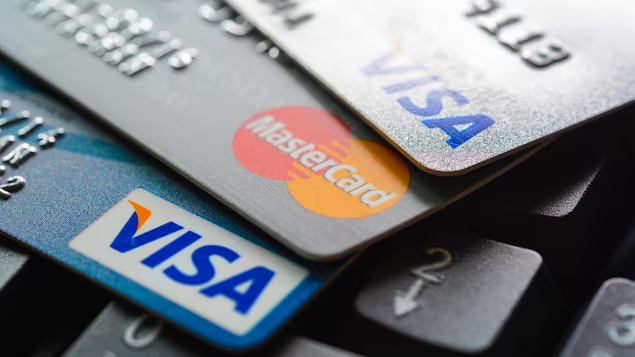For the seasoned credit card user, the monthly ritual of settling one’s bill before the looming due date is a familiar routine. Yet, the art of pinpointing the prime instance to pay off your credit card balance remains a puzzling endeavor.
Unveiling this temporal conundrum requires deliberation on various factors like your financial position, goals for enhancing creditworthiness, and the guidelines from your card issuer. Nevertheless, one fundamental rule persists—avoid tardiness at all costs.
Here is a practical guide to determining the opportune moment each month to settle your debts with creditors.
Insightful Tips
- Making a payment to your credit card company before the balance is reported to credit bureaus may bolster your credit score.
- Timely credit card repayment helps evade hefty late fees or penalty APR.
- Paying off your balances too early may forfeit the benefits of an interest-free loan.
- For those aiming to boost their credit score and punctuality, an early payment might outweigh a delayed one.
Understanding Credit Card Billing Cycles
Upon accruing transactions on your credit card, immediate full repayment is not mandatory. Instead, you’ll receive a statement on a predefined schedule. The period between two statements is known as your billing cycle, typically lasting between 28 to 31 days.
The events within your billing cycle unfold as follows:
- The final day of each cycle is the statement closing date. At this point, your card issuer generates a statement listing all transactions from the past 28-31 days. These transactions occur after your prior statement and during the current cycle.
- Upon receiving your statement, you’ll see the balance due as of the statement’s closure. Any charges incurred after the closure will be reflected in the next billing statement, along with any dues or interest additions.
- Your statement will specify a due date, requiring payment at least 21 days after statement delivery. This date, consistent in every cycle, prevents interest charges until its arrival, shielding against interest fees if the bill is paid in full by the deadline.
- At some point during each cycle, your credit card company notifies the major credit bureaus—Equifax, Experian, and TransUnion—of your credit balance. This is known as the reporting date.
The Importance of Timely Payments
With a minimum of 21 days given for credit card payment after receiving your statement, you have ample time to schedule payment to the card issuer.
Strategically timing your payment within this window can:
- Help reduce costs associated with late payments.
- Alleviate financial burdens by leveraging the interest-free borrowing window provided by your card, allowing repayment at your convenience.
- Contribute to a positive credit score as your timely payments are reported by your issuer.
There is no one-size-fits-all method to determine the best payment time for a credit card. Some users may prefer early payments, while others find aligning with or approaching the due date more beneficial.
The Advantages of Early Payment
In many cases, paying off your credit card balance before the due date may be advantageous.
If you are concerned about interest charges, avoiding them takes precedence. The average credit card interest rate, as per the Federal Reserve Bank of St. Louis, currently stands at 21.51% as of May 2024. While the due date protects you from interest charges, early payment serves as a preemptive defense against potential financial challenges. Delaying payment until the due date, only to face an unexpected obstacle, could prevent full repayment and result in immediate interest accumulation by your creditor on the remaining balance from the previous billing cycle.
Delaying payment not only incurs financial stress but also risks late fees and penalties. Making an early payment ensures protection against these levies, a necessary precaution in navigating the financial maze.
Preventing High Credit Utilization
To maintain a suitably low credit utilization ratio, advocating for early payment is unavoidable. The credit utilization ratio, a key factor influencing your credit score, compares your credit usage with the available credit limit. For example, with a $5,000 credit limit and a $1,000 debt, your ratio would be 20%.
A high credit utilization ratio indicates excessive borrowing, detrimental to your credit health. The credit bureaus calculate this ratio based on the figures reported by your issuer. Sometimes, the reporting date precedes your payment due date, resulting in increased balance reporting in the credit report despite full repayment.
Making an early payment before the reporting date ensures a lower balance is reported, preventing the negative impact of a high utilization ratio.
Planning Your Financial Settlements
The optimal payment timing depends on your financial goals, disregarding arbitrary calendar constraints set by card companies.
Early payment may be preferable if you receive your salary before the due date, allowing you to allocate funds to creditors before other expenses.
Alternatively, timely payment prevents unforeseen issues around your due date, avoiding a shortage of funds for creditor payment and preventing missed or late payments without the need to generate additional income.
When is Delayed Payment Warranted?
In certain circumstances, it may be necessary to delay payment until the due date.
For individuals facing financial difficulties, delaying payment may be necessary due to a lack of funds, awaiting reinforcements closer to the due date.
As credit cards offer a protected borrowing period before due dates, choosing to allocate funds elsewhere before a large bill may be wise. Thoughtfully managing financial allocations can support financial resilience.
If you are offered a promotional interest rate by your card issuer, adhering to the due date is sufficient to avoid unexpected interest accumulation during the zero-interest grace period.
If your current credit utilization shows significant restraint, attempting to pay your balance early may reveal an artificially low card utilization, potentially hindering credit score improvement.
The Risks of Delayed Payments
While early and timely payments offer viable strategies, procrastination undermines these principles:
- Average late fees amount to $32.
- Exposure to penalty APRs looms.
- Credit score deterioration is a risk, impacting your record for up to 7 years.
If you anticipate delinquency, promptly reaching out to the credit card issuer may allow for alternative payment arrangements or temporary enrollment in a forbearance program to mitigate consequences.
Therefore, determining the best moment to satisfy your credit card bill requires careful consideration.
Balancing Preemptive versus Timely Payments
Considering the benefits and drawbacks of early versus on-time payments is crucial for personal financial well-being:
- Assess your fund availability in line with your pay schedule and financial objectives. If funds are not available for early payment, timely payment is the alternative.
- Evaluate the importance of settling your card debt compared to other financial priorities. Delayed payment may align with broader financial strategies.
- Familiarize yourself with your credit card company’s reporting date for informed financial management. Preparing to remit your balance before this pivotal date helps avoid high credit utilization ratios and ensures accurate balance reporting.
Other Financial Strategies
Among the array of payment strategies is the intriguing concept of the 15/3 rule. Advocating a dual payment approach—initiating one 15 days before the due date followed by another 3 days prior—this theory suggests an accelerated path to credit score improvement, though results may vary.
The key is developing a sound financial plan to evade late payments.
Mastering Credit Card Payment Techniques
Making your monthly credit card payment seamless and stress-free is a reachable goal. Here’s a guide to navigating the payment spectrum with finesse:
- Align your due date with your pay schedule for harmonized financial planning.
- Strengthen your budget discipline with autopay to ensure prompt payments.
- Set up payment reminders to avoid inadvertent delays. Opt for text or email alerts from your card company to bolster your payment acumen.
- Scrutinize your monthly statements diligently to catch any erroneous charges early and confirm the accuracy of your due date.
I’ve always maintained autopay for my credit cards and consistently clear my full statement balance two days before my card company’s reporting date. This method not only maintains a low balance—encompassing only post-billing cycle transactions—but also ensures protection against late payments.
After making a payment, I request text confirmations for payment verification, supplemented by calendar reminders to confirm text receipt.
This strategy, guiding my financial journey prudently, helped me achieve a 792 credit score, considered “excellent” according to the VantageScore model. Give it a try to witness its financial effectiveness.
Conclusion
The ongoing debate between timely and early credit card repayment unveils paths contingent on specific financial goals. Customize your approach based on budget priorities, aspirations, and credit context to navigate the payment labyrinth adeptly.
Similarly, avoiding delayed payments stands as the cardinal financial principle, preventing unwarranted fees and credit penalties. For individuals grappling with payments or credit issues, consulting with credit counselors can illuminate practical debt management strategies.


